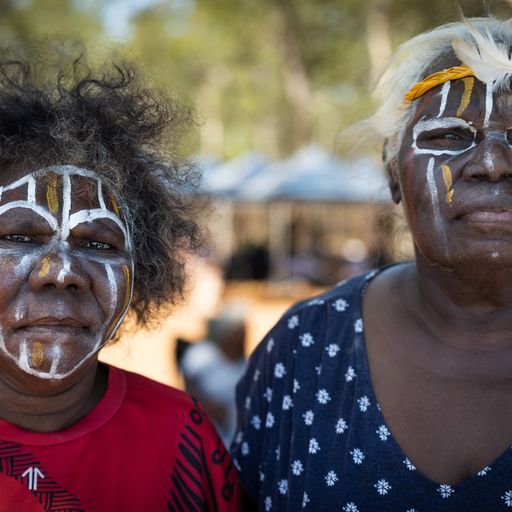Some 12 banks have come under fire from traditional indigenous owners from Australia’s Tiwi Islands and Larrakia country for their links to the Barossa gas project.
At the end of last year, gas company Santos lost a legal battle over its $4.7bn Barossa gas project north of the Tiwi Islands, which traditional owners argued they were not consulted about.
Approval for the project, which would involve drilling for gas in the Timor Sea 300km north of Darwin, had been granted by the National Offshore Petroleum and Safety Environmental Management Authority earlier in the year.
Now, traditional indigenous owners have filed a series of human rights complaints against members of a syndicate of 23 international banks, which lent $1bn to Santos and the project.
“In August 2022, when the Tiwi people were presenting evidence to the Federal Court about the impacts of the Barossa project and a lack of adequate consultation, banks from around the world were sizing up a $1b loan to Santos. Days later the loan was finalised,” said Vidhya Karnamadakala, associate at Equity Generation Lawyers.
“The banks had shown an abject lack of respect for our clients’ human rights and disregarded their own policies.”
The 12 banks are ANZ, CBA, Westpac and NAB in Australia; ING in the Netherlands; DNB Bank in Norway; Citigroup in the US; Royal Bank of Canada; DBS Bank in Singapore; and Mufg, Mizuho and Smbc in Japan.
In addition, complaints have been filed at three credit agencies: Kexim and K-Sure in the republic of Korea, and Jbic in Japan.
“The banks didn’t listen to us – they still gave them money. That’s wrong,” said Carol Puruntatameri, Munupi clan Elder (pictured).
The complaints, which use the firms’ internal grievance processes, claim funding the Barossa gas project contradict the institutions’ human rights policies. They ask for the $1bn loan to be withdrawn for and the public export credit agencies to stop funding joint venture partners in Barossa.
“Every stakeholder should have a human rights policy in place. Hopefully they will listen if they have human rights policies,” said Dennis Murphy Tipakalippa, Munupi clan leader.
“Stop getting the loans to Santos. We don’t want them destroying our waterways–especially turtles, dugongs, fish, mudcrabs and mangrove worms. Enough is enough.
“It is all about respect and we want the banks to respect us, and to respect Tiwi voices.”
Therese Wokai Bourke of the Malawu Clan added: “We want the banks to re-think what they’re doing and stop investing in companies that are destroying our world and environment.
“When mining companies ask banks for money they should consult with First Nations people to see if we are ok with their lending. Banks are enabling Santos to continue doing what they are doing without any care about our human rights and what they’re doing to the environment we live in. They don’t live here, we do. We have a right to protect and maintain our environment, our ancient cultural and spiritual practices and beliefs.”
Financial risk
The Institute for Energy Economics and Financial Analysis has also pointed out that financing the Barossa gas project carries “increasing financial risk”.
“Barossa is currently without a licence to drill for gas and will now have to turn its business case on its head,” it said.
“Under the recently introduced climate policy in Australia, the safeguards mechanism, the Barossa gas project and the CCS project will have to start at the same time – increasing costs. The CCS project is unlikely to be viable as it is too far from the gas field and too emissions intensive. Barossa is a deeply distressed project.”
Naish Gawen, gas and mining strategist at the Environment Centre Northern Territory, added: “With the world transitioning away from fossil fuels, Barossa just doesn’t make sense financially.
“Banks, investors, and gas corporations are all facing a reckoning with the fact that you can’t just rush ahead with fossil fuel projects on First Nations peoples’ land without even talking to them first, without obtaining their consent. That is not acceptable conduct.”





